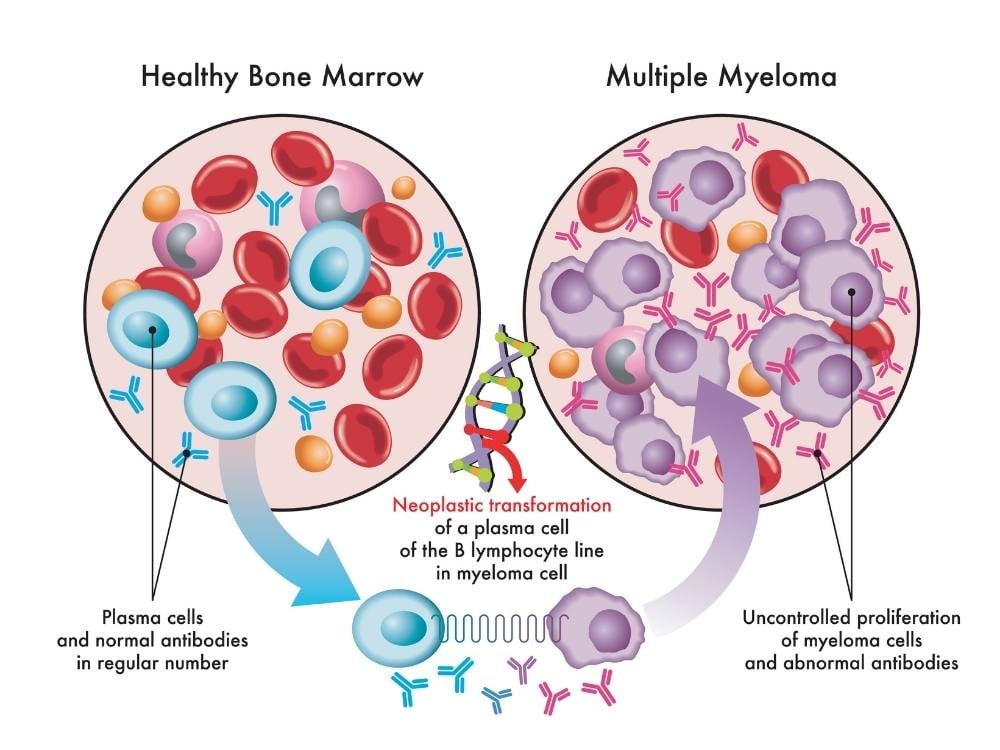Multiple Myeloma Diagnosis & Treatment

What is Multiple Myeloma?
Multiple myeloma begins when a plasma cell becomes abnormal. The abnormal cell divides to make copies of itself. The new cells divide again and again, making more and more abnormal cells. These abnormal plasma cells are called myeloma cells.
In time, myeloma cells collect in the bone marrow. They may damage the solid part of the bone. When myeloma cells collect in several of your bones, the disease is called multiple myeloma. This disease may also harm other tissues and organs, such as the kidneys.
Myeloma cells make antibodies called M proteins and other proteins. These proteins can collect in the blood, urine, and organs.

A Guide for Newly Diagnosed Myeloma Patients
Our multiple myeloma cancer specialists, called hematologists, have put together a guide that we hope will help you prepare for your first visit.
Multiple Myeloma
Symptoms & Diagnosis
Doctors sometimes find multiple myeloma after a routine blood test. More often, doctors suspect multiple myeloma after an X-ray for a broken bone. Usually, though, patients go to the doctor because they are having other symptoms.
To find out whether such problems are from multiple myeloma or some other condition, your doctor may ask about your personal and family medical history and do a physical exam. Your doctor also may order some additional tests, such as blood or urine tests, x-rays, or a biopsy.
Multiple Myeloma Staging
If the bone marrow biopsy or other tests show that you have multiple myeloma, your doctor needs to learn the extent (stage) of the disease to plan the best treatment. The stage takes into account whether the cancer is causing problems with your bones or kidneys. Staging may involve having more tests:
- Blood tests – For staging, the doctor considers the results of blood tests, including albumin and beta-2-microglobulin.
- CT scan – An X-ray machine linked to a computer takes a series of detailed pictures of your bones.
- MRI – A powerful magnet linked to a computer is used to make detailed pictures of your bones.
Multiple Myeloma Treatment Options
Multiple Myeloma Specialists at Willamette Valley Cancer
Multiple Myeloma Cancer Care in the Willamette Valley
When you’re ready, click the button to make an appointment with one of our multiple myeloma cancer doctors at WVCI. Our teams in Albany, Corvallis, Eugene, Florence, Lincoln City, Newport, and Springfield are ready to talk to you about your myeloma cancer and personalized treatment options. We know how important it is for you to receive good information and choose the treatment that’s best for you. We’re here to answer your questions and help you every step of the way.

